#everything flows
Explore tagged Tumblr posts
Text

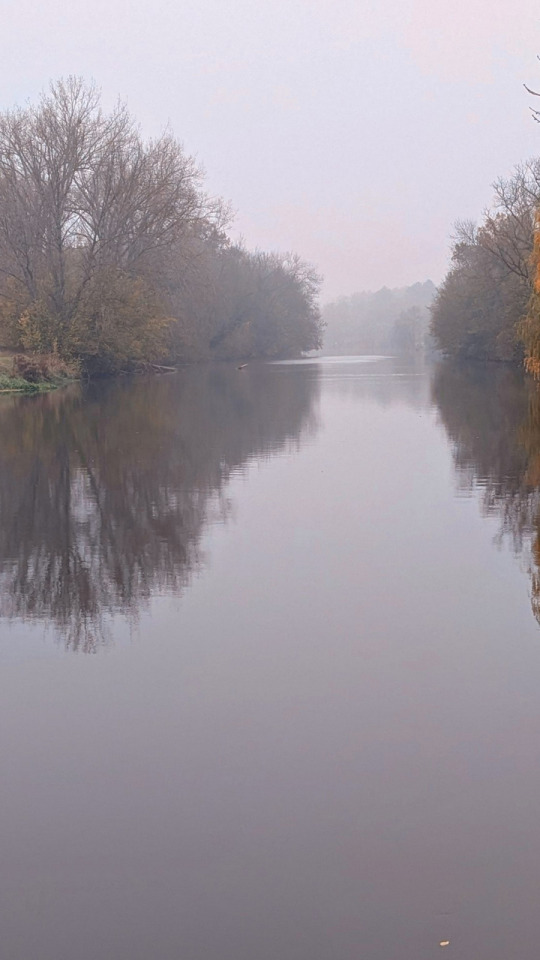

. . . | uwhe-arts
#riverside#stay for a while#november days#river saale#photographers on tumblr#reflections#tr#autumn vibes#uwhe-arts#triptych#three thirds#the river flows in you#silence#calming down#breath deeply#curators on tumblr#uwhearts#riverscape#landscape#autumn season#misty day#everything flows#triptychy#three
669 notes
·
View notes
Text
An intelligent man, once an important Party official at the provincial level, said to Ivan Grigoryevich, “When a forest is being felled, splinters fly—but the truth of the Party still holds true. This truth is more important than my misfortune.” He then pointed to himself and added, “So here I am—one of those splinters.” He was at a loss for words when Ivan Grigoryevich replied, “That’s just it—they’re felling the forest. Why do they need to fell the forest?”
—Everything Flows, Vasily Grossman trans. Robert Chandler
4 notes
·
View notes
Text

Imagine such a world; you need not, for there was a government given over to such (falsified) craven acts in the 20th century, leading to innocent sufferings by its citizens.
From the Book "Everything Flows", by Vasily Grossman
#soviet union#josef stalin#stalin#totalitarianism#gulag#vasily grossman#book review#everything flows
2 notes
·
View notes
Text
Everything individual in nature exists only because something else does; nothing springs from itself, everything springs only from the preceding moment in order to lead to a subsequent one.
from On Naive and Sentimental Poetry by Friedrich Schiller
#philosophy#german philosophy#german idealism#idealism#the german library#friedrich schiller#schiller#individualism#nature#existence#connected#interconnected#the moment#moments#moment to moment#flow#flux#everything flows#everything is connected
39 notes
·
View notes
Text


Day 29: Daru from She and Her Cat- Everything Flows
2 notes
·
View notes
Text

“The years passed, and the fog lifted, and what had been accomplished could be seen clearly. What had looked like chaos, insanity, self-destruction, the concatenation of unfortunate circumstances, the events whose mysterious, tragic meaninglessness had driven people mad, became recognizable step by step as the clear, precise, obvious attributes of the new life.
The fate of the generation of the Revolution was revealed in a new light, logically, without mysticism. Only now did Ivan Grigoryevich begin to grasp that new national destiny which had risen from the bones of the annihilated generation.
That Bolshevik generation of the Civil War period had been formed in the days of the Revolution; where the concept of the "World Commune" held absolute sway; in the midst of the hungry and inspired subbotniki. It took unto itself the heritage of World War and Civil War—destruction, famine, typhus, anarchy, rampant crime. Through Lenin's lips it proclaimed the existence of a Party that could set Russia on a new path. Without hesitation it accepted as its inheritance centuries of Russian tyranny, throughout which generations had been born and had died knowing one right only—"serf right," the right of the master over the serf.
Under Lenin's leadership that Bolshevik generation had taken part in the dissolution of the Constituent Assembly and the destruction of those democratic revolutionary parties which had struggled against Russian absolutism.
That Bolshevik generation of the Civil War did not believe in freedom of the individual, freedom of speech, freedom of the press - not in the context of bourgeois Russia. Like Lenin, it regarded as nonsense, as nothing, those freedoms of which many revolutionary workers and intellectuals had dreamed.
The young state crushed the democratic parties, clearing the path for Soviet construction. And by the end of the twenties, those parties were completely liquidated, and the people imprisoned under the Czar had been returned to prison and sent off to hard labor. And then, in 1930, the ax of the total collectivization of agriculture fell. And soon the ax fell again, this time on the Bolshevik generation of the Civil War. Only a small fraction of it survived—and its soul, at any rate its faith in the "World Commune," its revolutionary, romantic strength, departed with those who perished in 1937. The ones who survived made their adjustment to the new times, to the new people.
And the new people did not believe in the Revolution. They were not children of the Revolution. They were the children of the state the Revolution had created.
The new state did not require holy apostles, fanatic, inspired builders, faithful, devout disciples. The new state did not even require servants—just clerks. One of the state's concerns, in fact, was that its clerks so often turned out to be very petty indeed, and cheating, thieving types to boot.
Terror and dictatorship swallowed up those who had created them. And the state, intended as the means to an end, itself turned out to be the end. The people who created it had conceived of it as a means to the realization of their ideals. But it turned out that their dreams, their ideals, were merely a means, a tool, of the great and dread state. Instead of being a servant, as it was meant to be, the state had become a grim tyrant.
The people weren't the ones who needed the terror of 1919, who destroyed freedom of speech and of the press, who required the death of millions of peasants—for the peasants made up the largest segment of the people. It was not the people who in 1937 needed prisons and camps crammed to overflowing, who needed the ruinous resettlement in the taiga of the Crimean Tatars, the Kalmyks, the Balkars, the Russified Bulgarians and Greeks, the Chechens, and the Volga Germans. Nor were the people the ones who destroyed the freedom to plant and sow as one pleased and the workers' right to strike. Nor was it the people who heaped up all those monstrous taxes and surtaxes and levies on the production cost of consumer goods.
The state had become the master. What had been envisioned as national in form had become national in content; it had become the essence. And the socialist element, which had been envisaged as the content, had been forced out, reduced to mere phraseology, mere external form, a shell. And it was with tragic clarity that the sacred law of all life defined itself: freedom of the individual human being is higher than anything else, and there is no goal, no purpose in the world, for which it may be sacrificed.” - Vasily Grossman, ‘Forever Flowing’ (1972) [p. 191 - 194]

#grossman#vasily grossman#forever flowing#everything flows#russia#ukraine#soviet#soviet union#ussr#communism#bolshevik#lenin#marx#stalin#holodomor#liberty#libertarian#libertarianism#orwell#orwellian#1984#mises#ludwig von mises#statism#etatism#rand#ayn rand#statolatry#rothbard#murray rothbard
3 notes
·
View notes
Text
We Are Made Of Star Matter
A couple of days ago, this post flitted across my screen, and it made me think about a piece I wrote three years ago. So I just thought I’d share some personal thoughts about autumn, aging, mortality and being connected. And I’m looking at it now and recognise that there are repeating themes in there that have always resonated with me, even when I was a lot younger. Plus, for my Sandfam: There's a lot in there that resonates in that way, too...
And don’t worry, it’s not depressing. At least I hope so…
Autumn
My daughter has started doing divisions at school. Recently, on our walk back home through a very autumnal park with fallen leaves everywhere, we talked about the seasons, and how many parts of a whole each of them are individually.
»You know, humans go through seasons in their lives, too. If you assumed someone would be 80 before they died, how long would every season of their life be?«
»20 years?« She does a quick calculation in her head. »Which means I’m still in spring!«
»Pretty much so. And where am I?«
She does the numbers again. »Autumn.«
Autumn
That season when nature moves from growth and abundance to going more inward and protecting its very essence. When the outer signs and displays of renewal and fertility begin to whither away…
It would be straightforward to feel a bit uneasy about that transition. And at times, I do. I look in the mirror and see those signs: The facial features that change. The body that transitions. The change of colours (more and more greys). The daily physical pain that’s been around for quite a few years, but that I rarely talk about.
A body that slowly but surely prepares for winter. Nothing can change that, no matter how much we wish for it. No matter how much the performing arts glorify youth. No matter how sexist, misogynistic and deeply rooted in patriarchy that is. No matter how much we might lament the visible transition, or even try to stop it outwardly. We can’t. The body will do its thing, just like nature does.
It’s not a binary one of two things: Embrace it or try to escape it. It’s both, and everything in between. There are days when I wonder where time went, and what the flip happened.
However, there are as many days when I can see and appreciate the beauty of autumn. The change of colours, the giving back to where I once was and came from. But also the turning inward, the concentrating on what really matters, the getting better at preserving energy instead of incessantly expending it, the shedding of what no longer serves me. And there is goodness and beauty in that. A sense of gratitude for not having to put on the often loud display of spring and summer that’s all about, you know, proving that you have something going for you. That you’re eligible, that you are good material for the survival of the species, whatever that means individually (because it can be interpreted in many ways that go far beyond reproduction)…
At the end of the day, mortality stares us in the face once we move from summer to autumn. But isn’t that strange — it’s always been there, not just when we transition into midlife and beyond. Just like the heatwave in summer that destroys life, or the floods, or the unexpected touch of frost in spring that ends what has just begun. If I were to share the fate of the last two generations of women in my family, none of whom lived much past 60 (or didn’t even reach it), I would not even be in autumn. I would have reached the winter of my life by now.
Pánta Rheî
And maybe that’s what’s truly important. Appreciating the beauty of movement, of ebb and flow, of impermanence. The fleeting moments, no matter how much we want to hold on to them — we have to let them go, just like the tree lets go of its leaves.
However, maybe we sometimes wish time stood still, if just for a moment. Time, that arbitrary human concept that is more about perception than anything else. And yet, it’s visible, graspable, and inescapable.
I recently watched Midnight Mass (»What a strange change of subject«, you might think, but bear with me). I was apprehensive about it because I usually don’t like horror, but this one surprised me because it had many very deeply philosophical moments I didn’t expect (NB: I am not religious in any shape or form, maybe what most people would call an agnostic atheist. I can see why religious people might not like it, or might even find it offensive).
There is a beautiful moment when Erin talks about dying I’d like to share with you (you might not want to read on if you feel it would be a spoiler).
We Are Made Of Star Matter
»Myself. My self. That’s the problem. That’s the whole problem with the whole thing. That word, self. That’s not the word. That’s not right, that isn’t…
How did I forget that? When did I forget that?
The body stops a cell at a time, but the brain keeps firing those neurons. Little lightning bolts, like fireworks inside, and I thought I’d despair or feel afraid, but I don’t feel any of that. None of it. Because I’m too busy. I’m too busy in the moment, remembering.
I remember that every atom in my body was forged in a star. This matter, this body is mostly empty space after all, and solid matter. It’s just energy vibrating very slowly while there is no me. There never was. The electrons of my body mingle and dance with the electrons of the ground below me and the air I’m no longer breathing. And I remember there is no point where any of that ends and I begin.
I remember I am energy. Not memory. Not self. My name, my personality, my choices, all came after me. I was before them and I will be after, and everything else is pictures, picked up along the way. Fleeting little dreamlets printed on the tissue of my dying brain. And I am the lightning that jumps between. I am the energy firing the neurons, and I’m returning. Just by remembering, I’m returning home. And it’s like a drop of water falling back into the ocean, of which it’s always been a part.
All things… a part. You, me and my little girl, and my mother and my father, everyone who’s ever been, every plant, every animal, every atom, every star, every galaxy, all of it. More galaxies in the universe than grains of sand on the beach. And that’s what we’re talking about when we say ‘God’. The cosmos and its infinite dreams. We are the cosmos dreaming of itself. It’s simply a dream that I think is my life, every time. But I’ll forget this. I always do. I always forget my dreams. But now, in this split-second, in the moment I remember, the instant I remember, I comprehend everything at once. There is no time. There is no death. Life is a dream. It’s a wish. Made again and again and again and again and again and again and on into eternity. And I am all of it. I am everything. I am all. I am that I am.«
Whether you are comfortable with this perspective or not, it is hard not to acknowledge some simple truths behind it. During every season of our lives, but especially during autumn and winter. Maybe it’s just not the truth we want to hear when we are focused on the self. We all are to a degree, and I think that’s also natural. We seek meaning. But isn’t that meaning there by default?
Maybe, just maybe, if we remembered the complicated simplicity behind it all, we would feel more at home. Within ourselves, but also in the world, and with each other.
Alas, “Life is a dream. It’s a wish.” …
#my writing#writing#writeblr#midnight mass#on aging#autumn#panta rhei#everything flows#Erin’s soliloquy
12 notes
·
View notes
Text
0 notes
Text
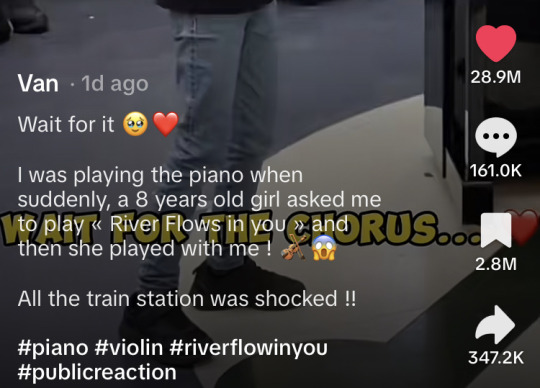
The most adorable duet (27 October 2023) x
#a beautiful duet#what a sweet talented and polite little girl#everything about her is cute from her voice and accent to her face#both are talented#his tiktok is full of cool piano performances#River flows in you#duet#violin#piano#mine
18K notes
·
View notes
Video
youtube
6:12 AM EDT May 28, 2023:
Redd Kross - "Everything Flows" From the album What A Concept! A Salute To Teenage Fanclub (April 6, 2004)
Last song scrobbled from iTunes at Last.fm
File under: Tributes to bands that weren't that good ---
1 note
·
View note
Text

everything flows . . . | uwhe-arts
#everything flows#cold day#photographers on tumblr#original photographers#uwhe-arts#nature#original creators#vertical#explore#photography#landscape#uwhearts#riverscape#reflections#trees#mirroring#saale#originalphotographers
3K notes
·
View notes
Text

made a digital redraw of this sketchbook doodle
#idk if this counts as digivember xp#I wanted to try a new brush in procreate but couldn’t be arsed to come up with any new ideas lol#I like this brush for everything except laying down the flats jjgghghfgvg it just doesn’t work together with the bucket tool#maybe I’ll try it in clip studio next to see if I can get it to work the way I want in a different app#anyway here's wonderwall#my art#my stuff#fanart#artists on tumblr#voltron#digital art#vld#procreate#procreateapp#vld keith#vld lance#klance#vld klance#voltron legendary disappointment#I mean#voltron legendary defender#we moved a week ago and it totally messed up my digivember flow#I have drawing number 15 in the works but sadly I won’t finish it before the month ends because I chose to make this instead lol
679 notes
·
View notes
Text








"I'm sure that this kiss comes from my feelings. The ones I have never experienced before."
#my golden blood#my golden blood the series#my golden blood ep5#marktong#mark x tong#jossgawin#joss wayar#gawin caskey#gmmtv#thail bl#bl drama#this scene was seggsy af lmao#nice to see that they understand the craft#this was the best ep yet and not just bc of this#i loved the flow + acting in this one#also nakan is a fcking psycho pls lock him up asap#but i can tell that mond is having the time of his life in this role lmaoo#he is doing so good#but anyway theyre eating well and we are being fed my crops are growing my skin is glowing#everything is swell
357 notes
·
View notes
Text

"No matter how enormous the skyscrapers, no matter how powerful the cannon, no matter how unlimited the might of the state, no matter how vast its empire, all this was only smoke and mist which would disappear. There remained alive and growing one genuine force alone, consisting of one element only—freedom. To live meant to be a free human being. Not everything real was rational. But everything inhuman was senseless and worthless. And Ivan Grigoryevich found it quite natural that the word 'freedom' had been on his lips when, as a student, he went oft to Siberia, and that the word had not disappeared from his mind but lived on there even now." - Vasily Grossman, ‘Forever Flowing’ (1972)
#grossman#vasily grossman#forever flowing#everything flows#russia#soviet union#ussr#communism#libertarian#libertarianism#mises#ludwig von mises#hayek#friedrich hayek#rothbard#murray rothbard#rand#ayn rand#state#statolatry#etatism#socialism#freedom#Stalin#lenin#marx#marxism
3 notes
·
View notes
Text
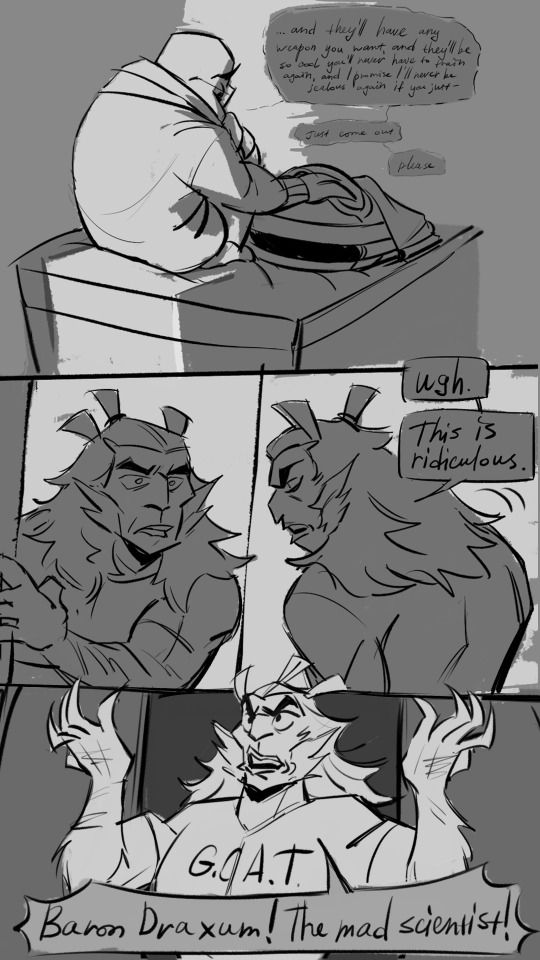

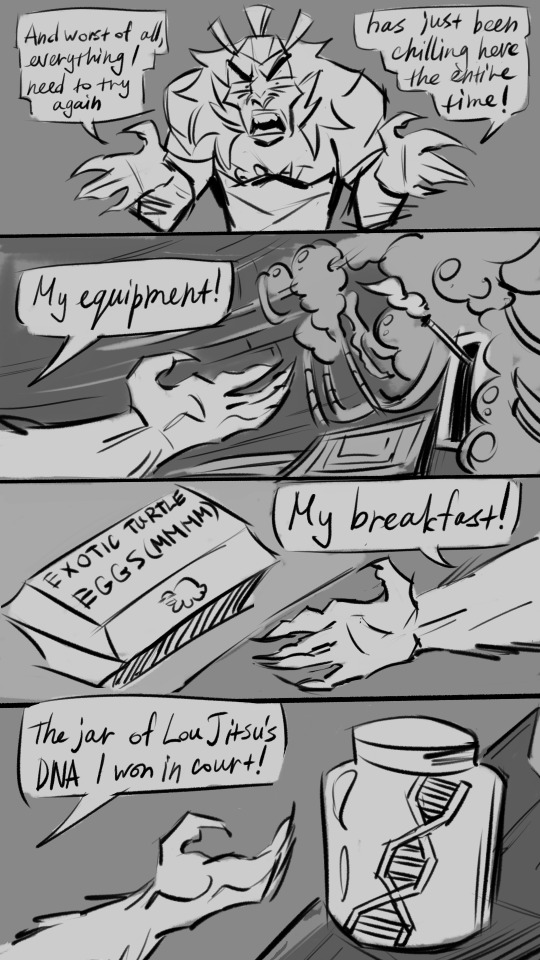
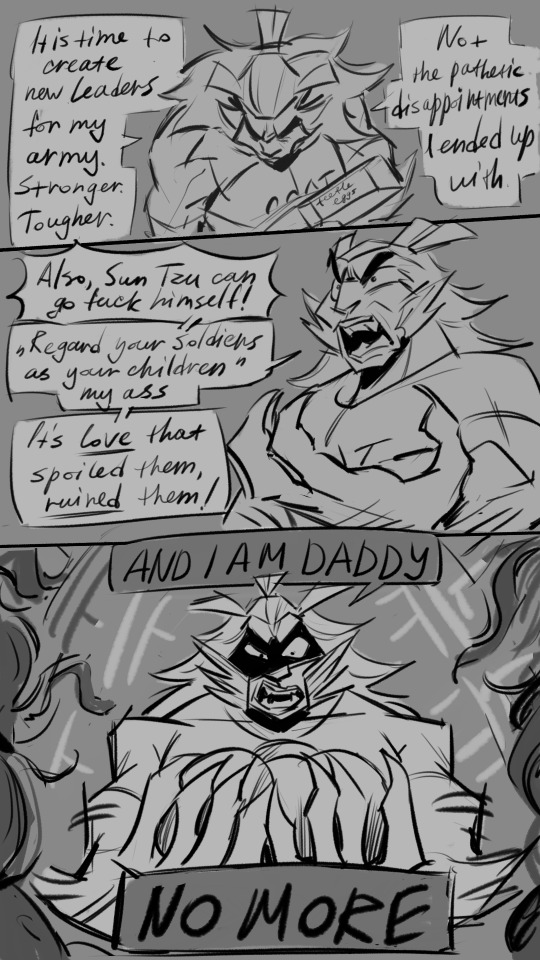
this is part one! | next
#rise of the teenage mutant ninja turtles#rottmnt#rottmnt donnie#rottmnt mikey#rottmnt draxum#villain pb&j duo#separated au#aaaaaaaa lets not talk abt the flow pacing and jokes in this my writing juice is running out#draxum having a mental breakdown and villain-ranting to himself for 4 pages straight#hes drinking all of that copium rn#im super improvising this whole thing btw im not rlly sure whats going on#but im having fun!#i hope everything is readable lol
2K notes
·
View notes
